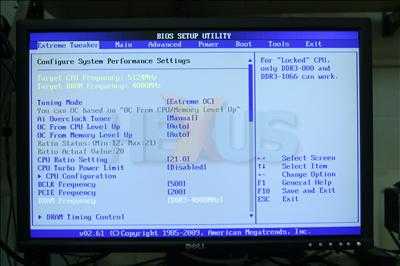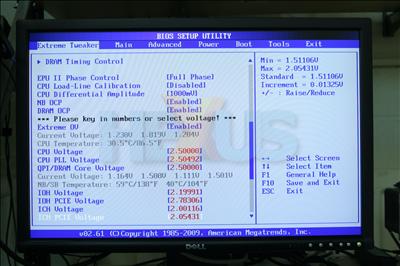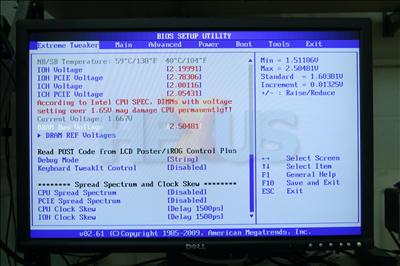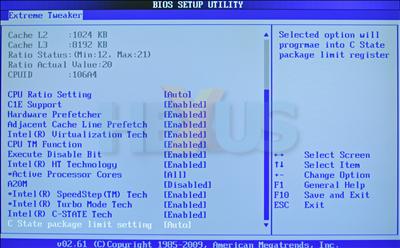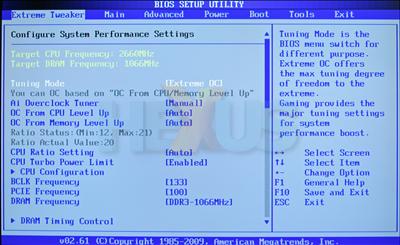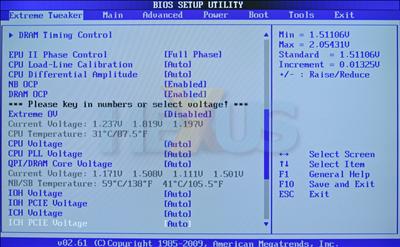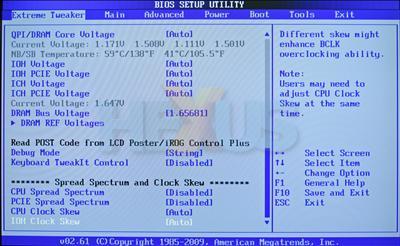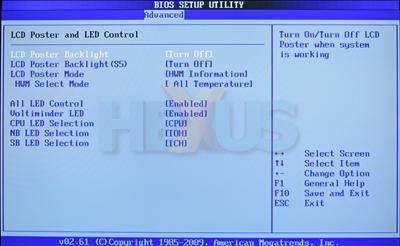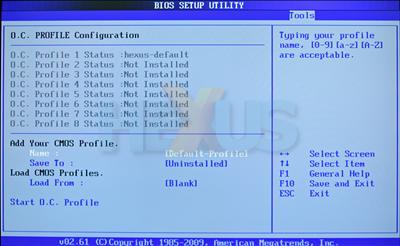BIOS musings
| Item | Specifications |
|---|---|
| CPU FSB (BCLK) | 100MHz-500MHz in 1MHz increments |
| CPU multiplier | 12x - 21x on 920 ES |
| Memory bus multiplier | 800MHz through to 4,000MHz @ 500MHz BCLK |
| CPU voltage | 0.85V - 2.50V in 0.00625V increments |
| CPU VTT (uncore) |
1.81592V to 2.50492V in 0.01325V increments |
| Memory voltage | 1.51106V to 2.50481V in 0.01325V increments |
| X58 IOH voltage | 1.11341V-2.19991V in 0.01325V increments |
| ICH10 voltage | 1.11341V- 2.00116V in 0.01325V increments |
We've only listed a small portion of the adjustments that are available in the BIOS, and, thankfully, ASUS marks out dangerous voltages by changing the default colour from blue to red.
Take a gander at some of those settings, highlighting the maximum offered by the board.
Gallery
The Extreme Tweaker section is where you'll want to head to when looking to fine-tune the board.
You can adjust the CPU's parameters on the initial page, and, if you so wish, turn off built-in features such as Hyper-Threading.
You could spend a whole day in the BIOS, toggling various features.
The BIOS is where you can use ASUS' ' CPU Level Up' feature, which automatically increases the speed of the chip to the next model up, such that a Core i7 920 runs at a 940's 2.93GHz clock-speed. It's accomplished by increasing the BCLK and memory frequencies.
And determine what the bundled LCD Poster shows.
Thankfully, you can save and reload up to eight BIOS profiles.
Overclocking can also be done via a simpler screen dubbed TweakIt.
ASUS provides a fantastic array of options which match the best on offer from other motherboard manufacturers. Such is the size of the company, that the BIOS team is probably as large as others' full R+D complement, and it shows. We don't imagine seeing this board inside a Dell or HP machine anytime soon.






